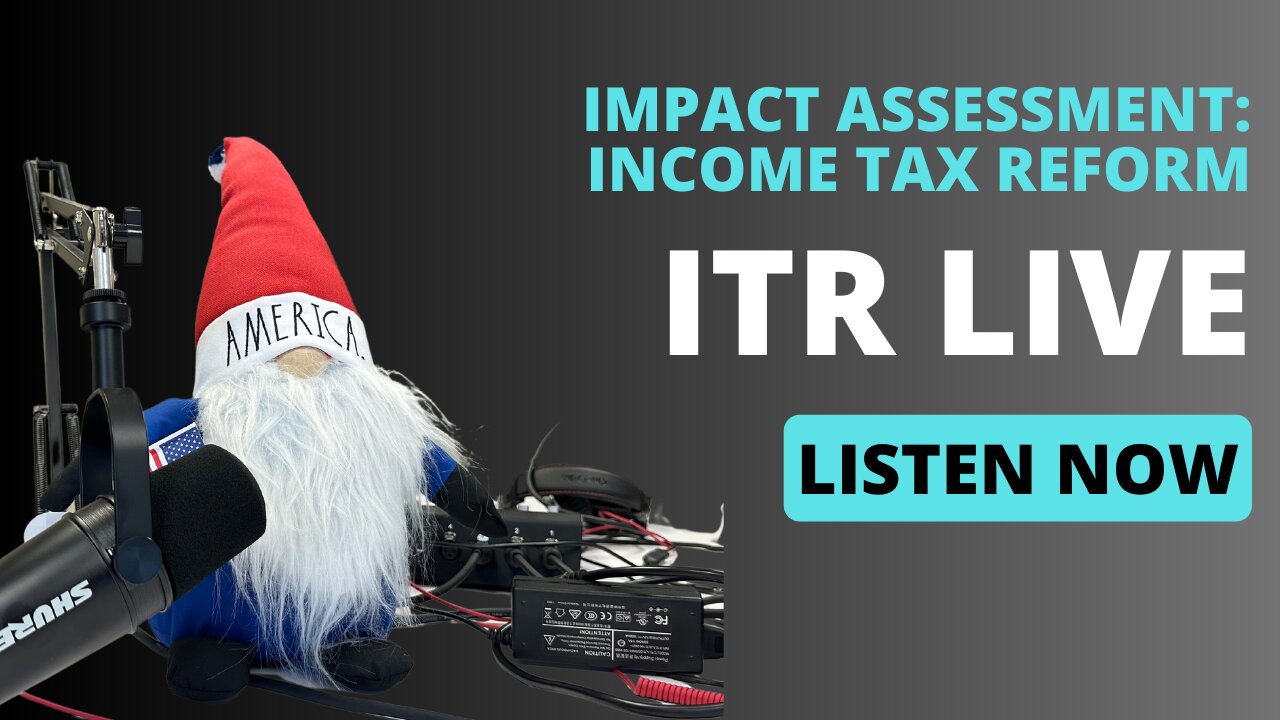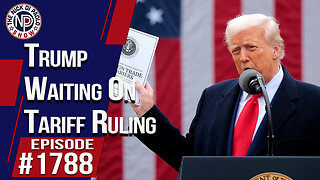Premium Only Content

Impact Assessment: Evaluating Income Tax Reform in Iowa
As we continue to examine the influence of conservative ideology on policy development, the conversation concerning income tax reform within Iowa remains at the forefront. The collaboration between the state and research institutions like the Buckeye Institute is a testament to the meticulous approach employed in modeling future tax scenarios. Their analysis suggests a promising possibility for Iowa's progression towards substantially lower tax rates, potentially reducing the flat rate from the already anticipated 3.9% in 2026 down to 2.5% or lower.
This forecast builds on Iowa's already notable shift from a high-tax state to a more competitive tax environment. Such a bold maneuver in fiscal policy reflects both the conservative value of limited government and the push for an economic landscape that benefits tax-paying citizens directly.
The resilience of Iowa's economy is evident in the latest discussions surrounding the Revenue Estimating Conference (REC). Despite a small projected revenue decline, the state's fiscal health remains robust, marked by "organic" economic growth as noted by state officials. This growth is attributed to Iowans actively participating in the economy, facilitated in part by the retention of more of their income due to earlier tax cuts.
Moreover, the strength of sales and corporate tax revenues bolsters the argument for further income tax reductions. While some media outlets may focus on the narrative of decreasing income tax revenue, such reports often fail to account for the bigger picture where money retained by tax cuts is channeled back into the economy, reinforcing the potential for surplus revenue in other tax categories.
-
 LIVE
LIVE
Badlands Media
16 hours agoThe SITREP Ep. 128
1,718 watching -
 LIVE
LIVE
BubbaSZN
2 hours ago🔴 LIVE - FORTNITE WITH NEW KEYBOARD
60 watching -
 DVR
DVR
Mally_Mouse
2 hours agoThrowback Thursday! Let's Play: Cuphead
9.91K1 -
 LIVE
LIVE
StevieTLIVE
2 hours agoWarzone HYPE Duos with GloryJean
56 watching -
 1:05:11
1:05:11
Donald Trump Jr.
4 hours agoBuilding the Future with American Bitcoin, Plus Eric's Triggered Debut! | TRIGGERED Ep.272
107K54 -
 LIVE
LIVE
RaikenNight
5 hours agoThe Baldur Boyz are on a Mission to Save the City
12 watching -
 LIVE
LIVE
Misfit Electronic Gaming
5 hours ago"LIVE" "Loan Shark" Demo + Managed Democracy "HellDivers 2" Phasmophobia with LNR + "REPO" W/Crew
28 watching -
 LIVE
LIVE
MissesMaam
7 hours agoLetting a Game from 2009 RageBait Me | Achievement Hunting PVZ 💚✨
59 watching -
 1:01:40
1:01:40
The Nick DiPaolo Show Channel
6 hours agoTrump Waiting On Tariff Ruling | The Nick Di Paolo Show #1788
33.9K21 -
 2:58:30
2:58:30
jordobombay
3 hours ago $0.09 earnedWarzone Update, Massive Day For The Unemployed
5.7K